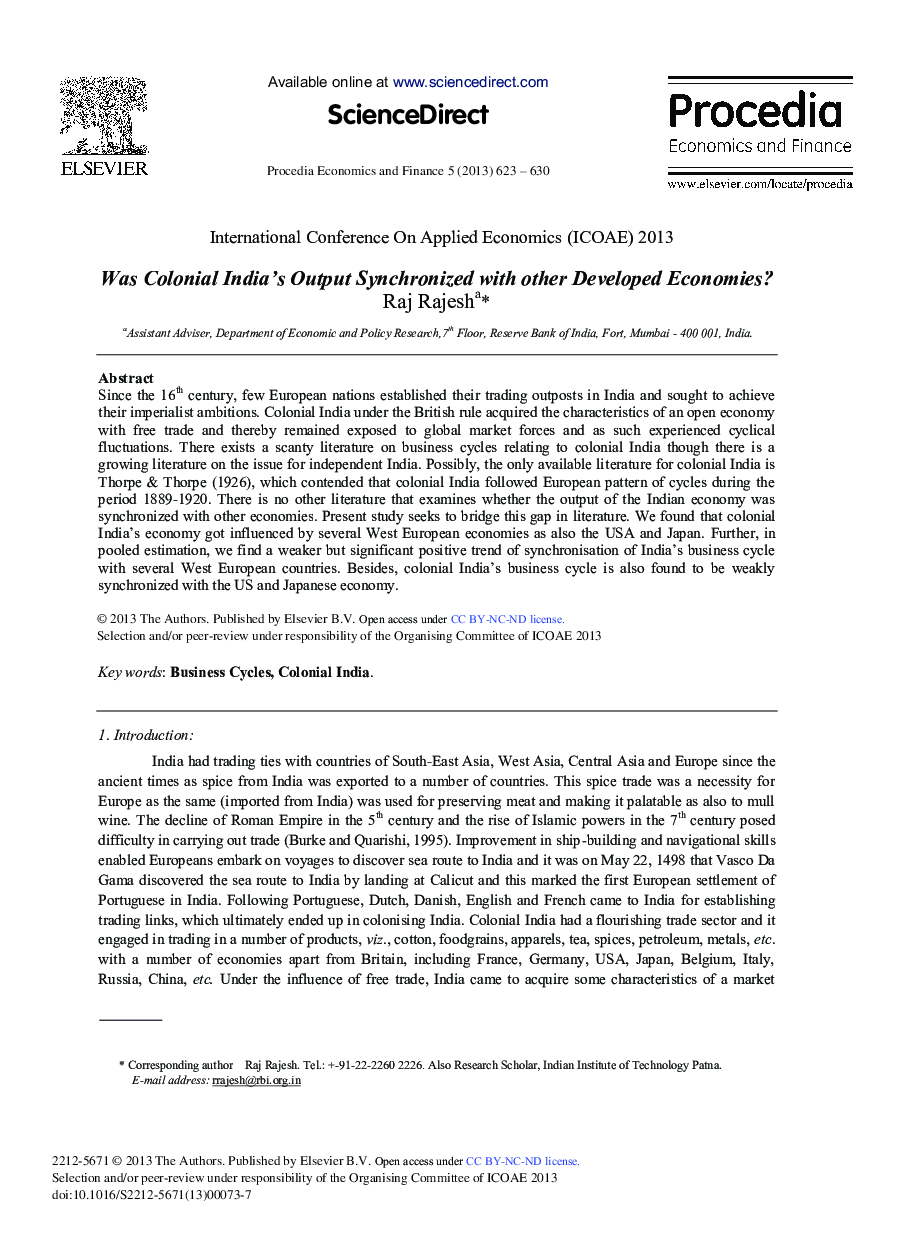| Article ID | Journal | Published Year | Pages | File Type |
|---|---|---|---|---|
| 981956 | Procedia Economics and Finance | 2013 | 8 Pages |
Since the 16th century, few European nations established their trading outposts in India and sought to achieve their imperialist ambitions. Colonial India under the British rule acquired the characteristics of an open economy with free trade and thereby remained exposed to global market forces and as such experienced cyclical fluctuations. There exists a scanty literature on business cycles relating to colonial India though there is a growing literature on the issue for independent India. Possibly, the only available literature for colonial India is Thorpe & Thorpe (1926), which contended that colonial India followed European pattern of cycles during the period 1889-1920. There is no other literature that examines whether the output of the Indian economy was synchronized with other economies. Present study seeks to bridge this gap in literature. We found that colonial India's economy got influenced by several West European economies as also the USA and Japan. Further, in pooled estimation, we find a weaker but significant positive trend of synchronisation of India's business cycle with several West European countries. Besides, colonial India's business cycle is also found to be weakly synchronized with the US and Japanese economy.
